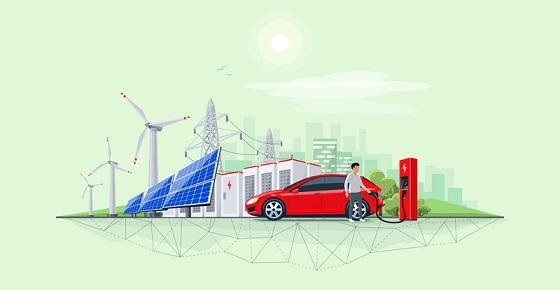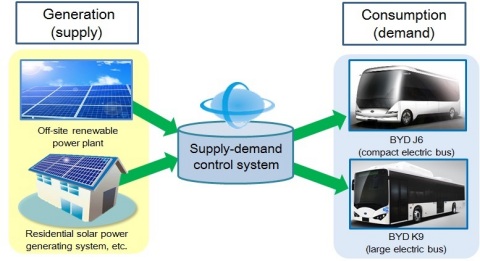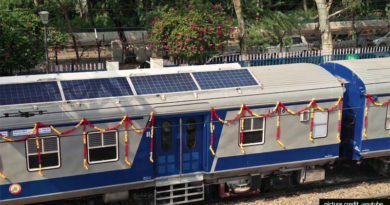Kyocera, BYD Working on Optimization of EV Charging with Renewables’
 New Solutions to integrate E-mobility with grid
New Solutions to integrate E-mobility with grid
By combining renewable energy from Kyocera’s solar power generating systems and BYD’s electric buses, the collaboration plans to maximize the effectiveness of renewable energy, reduce power losses, and maintain a stable supply-demand energy balance.
This development follows Japan, whose Ministry of Economy, Trade, and Industry (METI) has encouraged the use of EVs as part of its “Well-to-Wheel Zero Emission” policy. It aims to reduce greenhouse gas emissions by around 80% per vehicle, and up to 90% per passenger vehicle from 2010 levels by 2050.

Kyocera says it will use an aggregation technology it has developed in its virtual power plant test projects over the past few years. It aims to align demand for e-bus charging services with production from its PV plants and other distributed-generation assets, to reduce strain on the grid.
BYD, on the other hand, will provide two electric bus models that will be integrated into the system. Its K9 model is a large bus that is already on the market, while its smaller J6 model was specifically designed for the Japanese market and will be commercially available from spring 2020.
Both, Kyocera and BYD aim to demonstrate their first solution for EV integration by 2020 and bring it to the market by 2021, pending review of their key findings.
In February, Kyocera revealed plans to set up a virtual power plant around its headquarters in Yokohama. At that time, the company said that it would use a solar-plus-storage combination and a peer-to-peer blockchain energy trading platform provided by U.S. -based LO3 Energy.
Whilst studying the effectiveness of the supply-demand integrated energy system for electric buses, Kyocera will also explore the potential of other renewable energy applications such as independent power systems for residential, transportation, and ride-sharing services in collaboration with local communities, power retailers, and transmission and distribution system operators.
Recently, such technologies that could facilitate the integration of variable renewable energy resources at very low cost, while stabilizing the grid, are gaining a lot of traction in the market.
According to market experts, other than reducing carbon emissions, electric vehicles are somewhat low-hanging fruit, as they are already available at a marginal price difference compared to vehicles based on combustion engines. However, EV uptake is bound to have a considerable impact on the grid, as electricity demand could spike during typical charging times.




